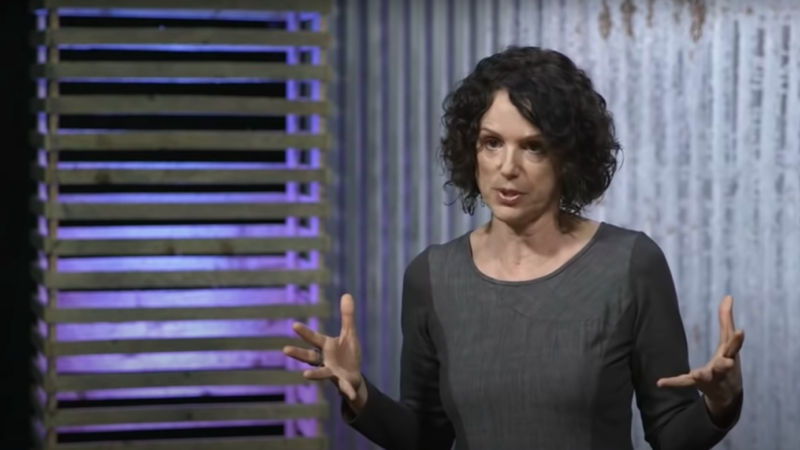UConn Will Pay White Fragility Author Robin DiAngelo $20,000 To Train School Administrators
The three-day retreat will help 44 top officials "come to grips with the critical questions of racism and inclusion."

The antiracism consultant Robin DiAngelo is having quite the summer. Her 2018 book, White Fragility, shot to the top of the New York Times bestseller list after the death of George Floyd brought renewed public attention to racial issues.
She has also come under considerable and well-deserved criticism for her suffocatingly racialized worldview, which reduces every person to a color and posits that their interactions with people outside their race will necessarily be fraught and painful. John McWhorter, a professor of linguistics at Columbia University, called White Fragility a "racist tract" that "diminishes black people in the name of dignifying us." His was one of many negative reviews to come DiAngelo's way this year. A New York Times article pointed out the absurdity of one of the central tenets of white fragility training: that positive traits like hard work, individualism, and valuing the written word are characteristics of white culture.
You might think such strongly expressed concerns about her underlying outlook and method would prompt a university to think twice about hiring DiAngelo to train its staff. In most other circumstances, university officials would denounce and flee from a book described as a "racist tract"; Tulane recently canceled a talk by an author whose clearly anti-racist book was unfairly accused of being racially harmful.
But this fall, the University of Connecticut plans to send four dozen top administrators to a three-day workshop where they will study antiracism under DiAngelo's tutelage. For her services, the author will be paid $20,000.
That high price tag is not surprising. News reports have already revealed that DiAngelo and other diversity lecturers often charge in the $10,000 to $15,000 dollar range for a few hours of work. (She even charges $320 per hour for a phone call.) Teaching white corporate executives, school officials, and nonprofit employees to reflect on how their whiteness affords them great advantages and contributes to systemic inequalities is a lucrative enterprise for DiAngelo (who is white).
The problem here isn't that DiAngelo is coming to speak. Public universities can and should use some of their funds to bring interesting speakers to campus, even if their ideas are thought to be harmful. That is, after all, one of the points of having a university: to consider and debate controversial ideas. People who disagree with DiAngelo's ideas should not be afraid of having her share them in a forum where she can be heard, challenged, and rebutted if necessary.
But DiAngelo will not be speaking in a public forum. She will not address students directly. Critics will only be able to engage her ideas in secondhand form, after they have been put into practice by administrators who set rules regarding how people are allowed to interact with each other on campus. DiAnglo is not going to UConn to engage in the give and take of ideas. She is training the university's employees, with the explicit expectation that they will put her recommendations into practice.
UConn President Thomas Katsouleas said as much in a press release, though he put it rather differently: "This retreat will help University leadership come to grips with the critical questions of racism and inclusion, and to bring those insights back to our campuses." Beware the new insights of the campus speech cops.


Show Comments (84)